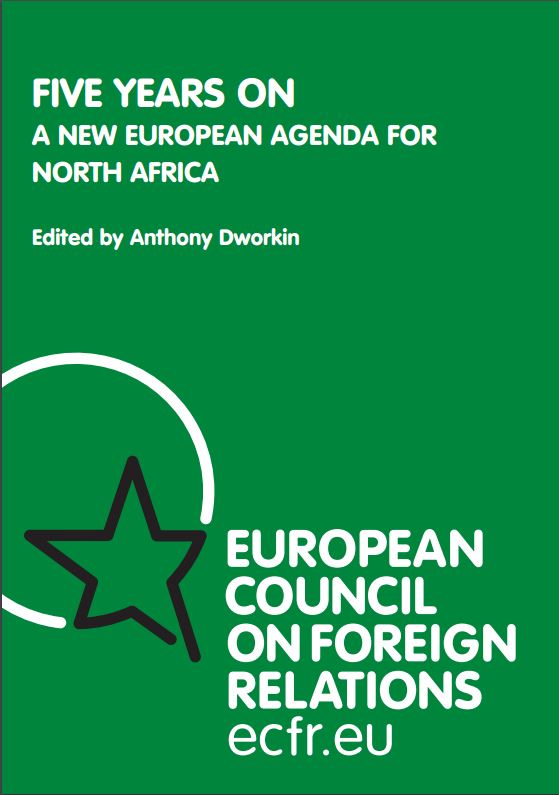Five years on: A new European agenda for North Africa
Five years after the Arab uprisings in North Africa, the EU needs to avoid an “either-or” mentality on stability versus progress
Five years after the Arab uprisings in North Africa, the EU needs to avoid an “either-or” mentality on stability versus progress and keep its ambitions to promote reform in the region.
“Five Years On: A new European agenda for North Africa”, edited by Anthony Dworkin, contains assessments of the social, economic and political situations in Morocco, Algeria, Tunisia, Libya and Egypt. It argues that despite the European turn towards a stability-first approach to the region, the lesson of the 2011 uprisings is that authoritarian stability is illusory.
In all these countries, the report acknowledges that the EU must recognise the limits of its influence and the necessity of immediate steps to create stability, either on counterterrorism or to reduce migration to Europe. But the EU and its member states must set against this imperative the need to approach North Africa with a clear picture of the most important priorities in each country for advancing the EU’s interconnected interests in security, development, and accountability.
The individual chapters in the collection focus on:
• Tunisia – Monica Marks depicts the failure of post-revolutionary Tunisian governments to deliver far-reaching economic or administrative reform which is posing a growing threat to the consolidation of democracy. She recommends supporting measures to reform the structures of the Tunisian state to improve its ability to meet popular aspirations and combat security threats
• Morocco – Maâti Monjib describes the centralisation of all power into the Moroccan regime, and the report recommends an approach that focuses the EU on building up counterweights to the palace and state within Moroccan politics and society, while supporting economic and social development for the country’s deprived regions
• Algeria – Andrew Lebovich hints at the first stirrings of reform and calls on the EU and its member states to stand ready to support beneficial policies that emerge under Bouteflika and his eventual successor
• Egypt – Ahmed Abd Rabou argues that the security-driven approach of President Abdel Fattah el-Sisi is likely to lead neither to lasting security nor to greater economic opportunity. However, Europe’s leverage in Egypt is severely limited and so Abd Rabou argues that the EU should renew its efforts to focus the attention of the Egyptian authorities on a few concrete steps to reduce political polarisation and increase the political representation of the mass of society
• Libya – Mattia Toaldo calls for the EU and its member states to move away from the security-first approach that has characterised European engagement in the country. In particular, he recommends supporting local authorities and an effort to bring cross-border smuggling of legal goods into the regular economy
Anthony Dworkin, Senior Policy Fellow at ECFR and editor of “Five Years On”, said:
“Current EU policy describes stabilisation as ‘the most urgent challenge’ in North Africa. EU member states with the strongest links to the region are now focused on preserving the areas of stability that exist, and cooperating with the regimes that are in place – whatever their democratic credentials.”
“The new emphasis on stability makes sense. Further state breakdown in North Africa would be devastating for its populations and threaten serious consequences for Europe. European security concerns are real and pressing”
“Yet the EU has a powerful incentive from the 2011 revolutions to remember that authoritarian stability is a mirage, and that economic development overseen by unaccountable governments tends to deliver little gain for their subjects.”
“European governments should recognise that cooperation with North African states will not be put in jeopardy if the EU pushes incremental changes in economic policy or political openness. Objectives pitched at this level are more likely to be implemented than sweeping plans for fundamental change.”
The European Council on Foreign Relations does not take collective positions. ECFR publications only represent the views of their individual authors.



